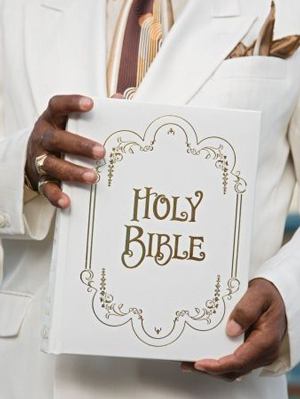
Some 1,200 years after the time of Moses, enough people needed a new Bible that thousands of them accepted the New Testament ? if not as a total replacement for the Old Testament, then surely as a fundamental reordering of the latter’s authority and importance. And some 600 years after that new bible came on the scene, Islam introduced its new Bible, the Koran.
So while making new bibles may be an old tradition, when an atheist does it, it’s certainly news. Shouldn’t atheists be the last people producing bibles? The fact that the latest edition of the “new” bible has been created by famed British philosopher A.C.Grayling, an avowed atheist, makes one wonder, why has he written this book?
Grayling’s view is that for historical reasons, religions have a grossly inflated place in the public domain, so that their voice and influence is amplified disproportionately. He has spent his entire career saying religion has too much influence, yet he has now written a book called “The Good Book: A Humanist Bible.” Funny choice of titles for such an assertive atheist, or is it?
A more cynical soul might interpret it as Grayling poking fun at those who take the “old Bible” seriously, and perhaps that was his intent. In choosing his title, perhaps Graying was arguing for a wider definition of what we include in our definition of sacred literature. But whatever his intent was, in creating his new Humanist Bible, the author pays tribute to the enduring wisdom of the Bible and the importance of having a sacred text which informs our lives.
Ironically, by referring to the book as a “Bible,” Grayling proves the enormous influence and significance of religion. Using a sacred reference, he admits, perhaps inadvertently, that the power of traditional religious language goes beyond anything you can find anywhere else.
Bottom line, the need for a Bible is more universal than is the definition of what it includes. No matter what Grayling may say about the outsized influence which religion has in the world, and no matter how strongly he denies the existence of God, Grayling’s book reminds us that people, even those who have “outgrown” God, need sacred stories and wise teachers from long ago in order to help us lead more meaningful and ethical lives.
Grayling also shows us that atheists can become every bit as narrow and dogmatic as they often accuse religionists of being. “The Good Book” presents wisdom teachings taken from many of the world’s greatest minds, including Confucius and Mencius, Seneca and Cicero, Montaigne, Bacon, and many others, and is organized into 12 sections, including Genesis, The Sages, Parables, Lamentations, Proverbs, Songs, Acts, and The Good.
Although the book is clearly organized around obviously biblical headings and themes, e.g., his Genesis opens with a tree in a garden; Grayling seems to have assiduously avoided incorporating any classically biblical text in the teachings. That decision strikes me as the replacement of a new narrow orthodoxy for what Grayling presumes is another — further evidence that atheism can be every bit as ideologically myopic as some versions of theism.
Faith, including the faith of atheism, for those who follow that path, has a place in our lives, but the faiths which we follow cannot limit the range of those from whom we can learn. When that happens, all people suffer, regardless of their faith.
Although Grayling’s “Humanist Bible” will not replace the one in which I believe, it will find its place on my bookshelf as one from which I can learn. Ultimately, our ability to learn not only from the Bibles in which we do believe, but also from those in which we do not, may be the most important intellectual-spiritual capacity for living peacefully in our increasingly inter-connected world.
